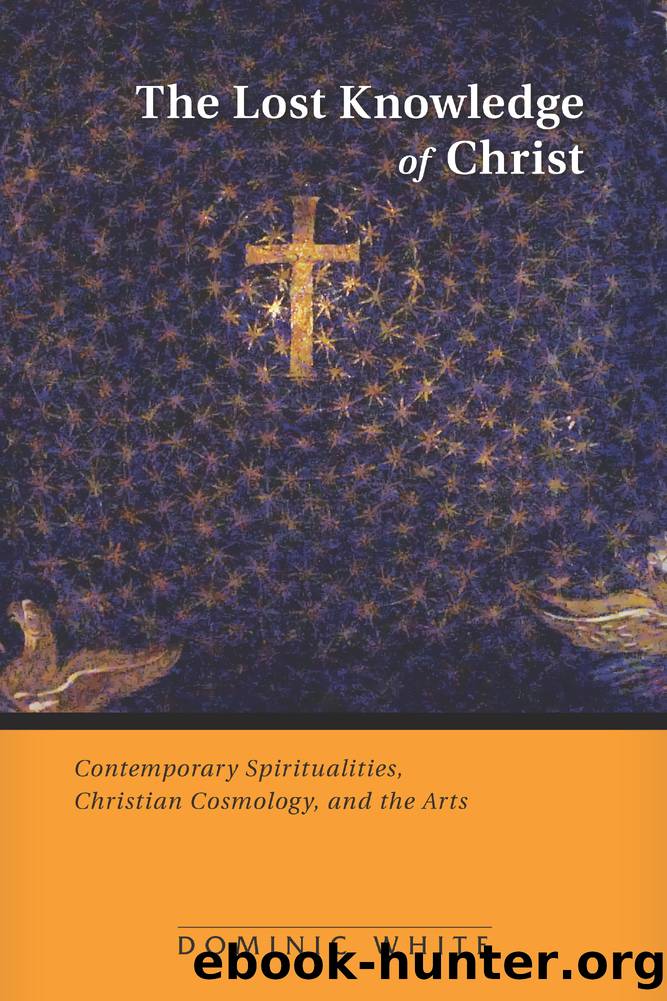The Lost Knowledge of Christ by Dominic White

Author:Dominic White
Language: eng
Format: epub
Publisher: Liturgical Press
Published: 2015-03-27T00:00:00+00:00
. . . And the Law of Music
Marc Vella is a pianist who literally tows his piano around the world, playing in cities and countryside, in deserts and on top of buildingsâa cosmic music indeed. He emphasizes the transcendent power of music to bring us to our true selvesâagainst the spirit of unhealthy competition too often present in the world of professional music. As a piano teacher, he says he teaches in order to spread love and joy: âthe key of the great awakening, the road leading to gnosis.â36 This is not far from Paul: âIf I speak in the tongues of mortals and of angels, but do not have love, I am a noisy gong or a clanging cymbal. [. . .] For we know only in part,â but love, the greatest, is perfect and never ends (1 Cor 13:1, 8-9).
Marc Vellaâs next step is a challenge: âIf we live like this, then thereâs inevitably less need for authority and laws, as love carries within itself its own values.â37 Music, of course, has its laws: harmony, rhythm, counterpoint, and so on. But to learn them is to learn to use them with wisdom, until we learn how the same sound can be a discord or a great harmony, depending on its context.
But artistsâ frequent bridling at the constraints of the law and custom can make governmentsâand the Churchânervous! After all, who wants to live in a lawless society? In church, this tension is often played out in clashes between the inspired musicians who want to do a wonderful new piece for Christmas, and the pastor who wants the liturgy sung âcorrectly and soberlyâ or for âthe people to be able to join in.â
As so often, clashes over art reveal deeper issues. The law of music raises the whole question of âthe lawâ in Christianity. Today, devout Christians are often at loggerheads over the status of the moral laws of their own churches. The debates about âthe lawâ in the New Testament were about far more than whether or not the Gentile converts should observe the Jewish law (Acts 15). Paul rails at the Galatians for wanting to observe a law that put them under a curse and could not justify them (Gal 3:1, 10-14). He connects the law with sin and death, against âthe law of the Spirit of life in Christ Jesusâ (Rom 7; 8:1)âi.e., Wisdom. James, who reminds his hearers of the need for good works as the fruit of faith, speaks of the law of perfect freedom (Jas 1:25), while John will speak of loving God as keeping his commandments (1 John 5:1-5).
Yet in Matthew, perhaps the most Jewish of the gospels, Jesus says,
Do not think that I have come to abolish the law and the prophets; I have come not to abolish but to fulfill. For truly I tell you, until heaven and earth pass away, not an iota, not a dot, will pass from the law until all is accomplished. Whoever then breaks one
Download
This site does not store any files on its server. We only index and link to content provided by other sites. Please contact the content providers to delete copyright contents if any and email us, we'll remove relevant links or contents immediately.
The Secret Power of Speaking God's Word by Joyce Meyer(3159)
Signature in the Cell: DNA and the Evidence for Intelligent Design by Stephen C. Meyer(3123)
Real Sex by Lauren F. Winner(3005)
The Holy Spirit by Billy Graham(2938)
The Gnostic Gospels by Pagels Elaine(2517)
Jesus by Paul Johnson(2349)
Devil, The by Almond Philip C(2323)
23:27 by H. L. Roberts(2245)
The Nativity by Geza Vermes(2222)
Chosen by God by R. C. Sproul(2158)
All Things New by John Eldredge(2151)
Angels of God: The Bible, the Church and the Heavenly Hosts by Mike Aquilina(1951)
The Return of the Gods by Erich von Daniken(1925)
Angels by Billy Graham(1917)
Knowing God by J.I. Packer(1848)
Jesus of Nazareth by Joseph Ratzinger(1802)
The Gnostic Gospel of St. Thomas by Tau Malachi(1781)
How To Be Born Again by Billy Graham(1775)
Evidence of the Afterlife by Jeffrey Long(1773)
